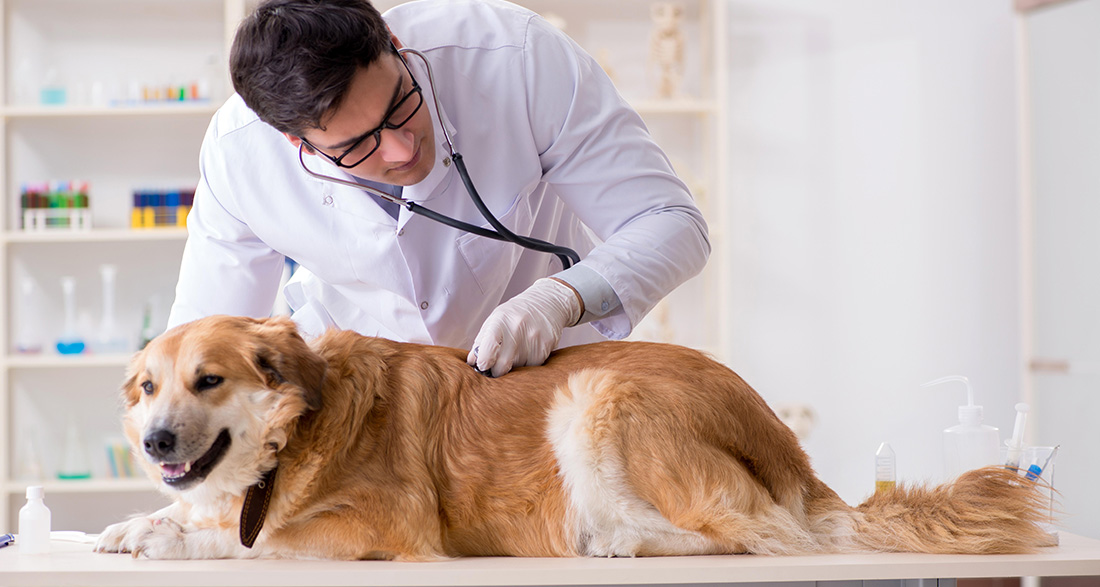Which foods are toxic to my dog? Is chocolate or fruit harmful to dogs? Find out what your dog should not eat here.
- What Your Dog Should Not Eat
- Chocolate: Toxic to Dogs!
- Grapes and Raisins: Not Always Equally Toxic to Dogs
- Onion, Garlic & Allium Plants: Always Toxic to Dogs!
- Milk and Butter: Cause Diarrhea
- Cheese for Dogs: It Depends on the Type
- Unhealthy Spices for Dogs: Salt, Chili, Curry & Co.
- Alcohol: Highly Toxic to Dogs!
- Coffee and Energy Drinks: Extremely Toxic to Dogs!
- Acorns, Pine Cones, Chestnuts: Not for Eating!
- Poisonous Plants for Dogs
- Tobacco, Cigarettes, and Cigarette Butts: Highly Toxic to Dogs!
- Chewing Gums for Dogs: Not Edible!
- How Can I Prevent My Dog from Eating Toxic Substances?
- What Should I Do If My Dog Has Eaten a Toxic Substance?
What Your Dog Should Not Eat
“My dog eats everything” – If this phrase could come from you, you’re probably pleased that your dog can handle any food. However, you might also know the problem: your dog eats everything, even things it shouldn’t. Many foods can harm your beloved pet because your four-legged friend has a different metabolism than you, and not everything that humans tolerate is suitable for a dog’s stomach. Even during your daily walks with your dog, you need to pay attention to what it shouldn’t nibble on. To ensure your pet’s safety, we’ll provide you with some tips on what to look out for when it comes to poisoning.
General rule:
If your dog has ingested a toxic food, contact your veterinarian as soon as possible!
Chocolate: Toxic to Dogs!
Chocolate is not a suitable treat for your dog! It contains theobromine, a substance that dogs metabolize exceptionally slowly and has a toxic effect on your four-legged friend. Keep in mind that as the cocoa content in chocolate increases, the risk of poisoning your dog also grows. A piece of milk chocolate is much less dangerous than a piece of dark chocolate.
Reactions to chocolate depend mainly on the size of your dog. If Doberman Benni snatches a chocolate ball from the Christmas plate, he will likely react with stomach pain and lethargy. For Jack Russell Peaches, the situation could become life-threatening within a short period.
Signs of poisoning range from external symptoms such as muscle tremors to diarrhea with vomiting, internal bleeding, and unconsciousness. To provide first aid, it is advisable to have activated charcoal tablets on hand, as they act antitoxic on the stomach and intestines, slowing down the absorption of the toxic substance. If your dog has eaten chocolate, please contact your veterinarian immediately!
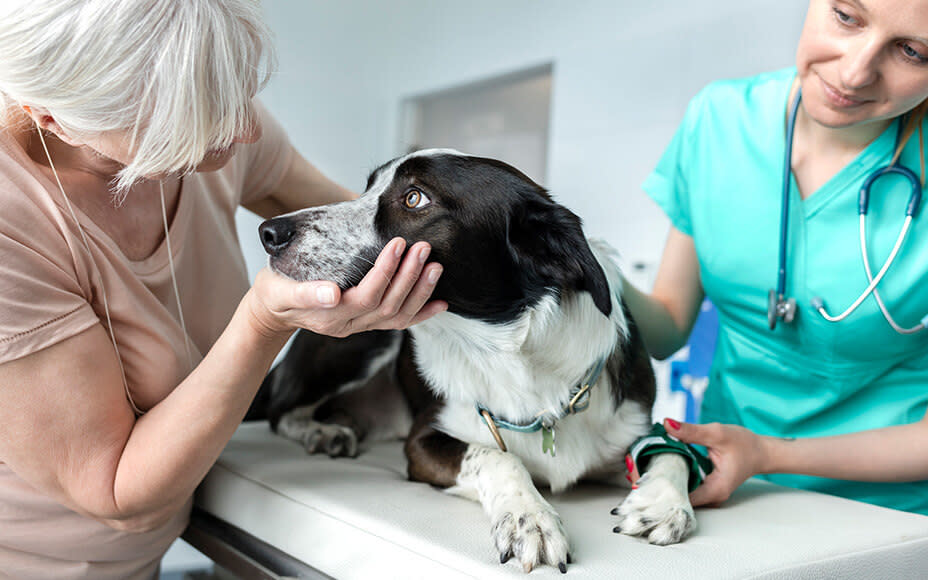
Grapes and Raisins: Not Always Equally Toxic to Dogs
Contrary to the myth that grapes are always toxic to dogs, the tolerance of these sweet fruits depends on the individual dog. According to reports and studies, some dogs tolerate grapes better, while others may die from kidney failure within a few days after eating grapes. The reasons for the varied reactions of dogs to grapes are not yet scientifically proven.
What is a sweet and healthy snack for us can quickly become a disaster for some dogs. The culprit is oxalic acid found in grapes, which can have a damaging effect on your dog’s kidneys. The same goes for raisins, which contain even more oxalic acid as dried grapes. If your dog has eaten a larger amount of grapes, symptoms may manifest as diarrhea and vomiting.
All clear! A single grape will not make your dog sick. But why take a risk? Instead of grapes, you can feed your dog various other fruits like blueberries or banana, or opt for our tasty and healthy dog snacks!
Onion, Garlic & Allium Plants: Always Toxic to Dogs!
For you, a meal is incomplete without onions and garlic? For your dog, it’s a different story: please avoid both! All types of allium plants are harmful to your dog. The substances they contain attack red blood cells (erythrocytes), which your pet needs for oxygen supply to all organs.
Toxic effects begin with minimal intake, so you must prevent your dog from nibbling on allium plants. This includes garlic and all types of leeks, such as wild garlic and chives. If you want to feed your dog vegetables, take a look at our list of healthy vegetables for dogs.
Milk and Butter: Cause Diarrhea
Drinking a glass of milk and experiencing a rumbling stomach? Your furry friend may feel the same way. Consuming foods containing milk is not toxic, but they can burden and disrupt the digestive tract of many dogs, leading to bloating and diarrhea. Moreover, butter contains unhealthy fats that have no place in a dog’s bowl.
Cheese for Dogs: It Depends on the Type
When it comes to feeding cheese, it’s a bit different: the type of cheese matters. Some types of cheese contain relatively little lactose and can be a tasty snack or a special reward during training. However, cheese should always be fed in moderation and as an exception, as even in low-lactose varieties, there is a high salt content.
Does your dog go crazy for cheese? Then our tasty Cheese Tasties are just right for him! A soft chew stick with juicy chicken and delicious Emmental cheese – ideal as a treat for in-between.
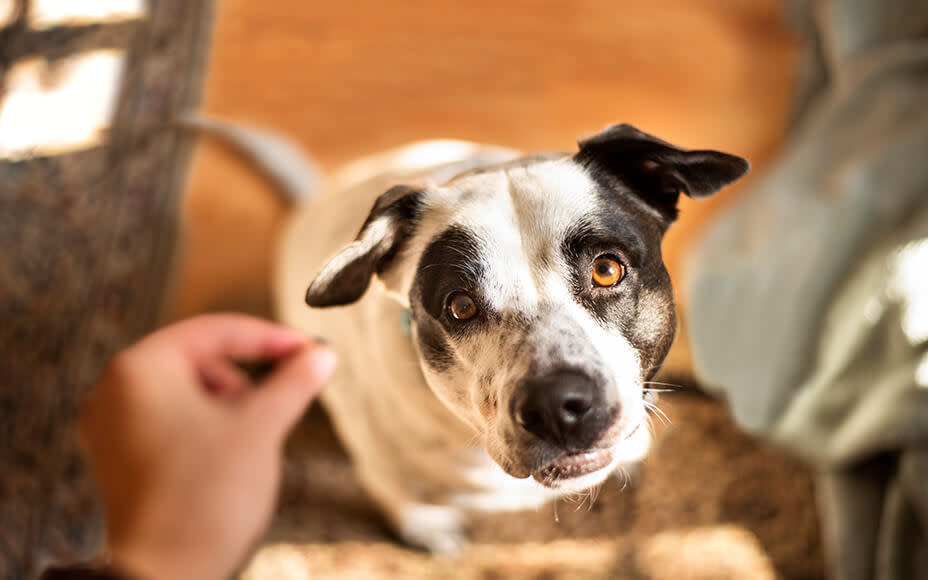
Unhealthy Spices for Dogs: Salt, Chili, Curry & Co.
Love may be salty, but no matter how great your love for your dog is, adding salt to its food is not good for it. Just like for us humans, salt is essential for your four-legged friend, but it is already present in sufficient quantities in high-quality pet foods.
Your dog’s senses are extremely sensitive, so intense spices like chili, pepper, nutmeg, and curry are off your dog’s menu. Sniffing sharp spices like pepper or chili can also cause intense sneezing fits in your dog. Ground forms of allium plants are also off-limits for your dog.
Instead, flavoring your dog’s food with a little Ceylon cinnamon is safe. Some spices and herbs are even great for your pet’s health! Basil and fennel, for example, support proper digestion. At iHugDogs, we know this, so we include the finest herbs in our dog food to perfectly complement your dog’s tasty meal!
Alcohol: Highly Toxic to Dogs!
A glass of wine or beer after a hard day’s work with loved ones harms no one – except your dog. Alcohol is highly damaging to the liver and kidneys, and vomiting, diarrhea, and cardiovascular failure can be the result. So, let your four-legged friend toast with water instead.
Coffee and Energy Drinks: Extremely Toxic to Dogs!
Please don’t talk to me before my first coffee in the morning? Sometimes an energy drink during lunch is needed to make it through the day. However, for your dog, it should be off-limits because caffeine – like theobromine found in cocoa and chocolate – is one of the substances that are generally safe for humans but highly toxic for your four-legged friend.
Acorns, Pine Cones, Chestnuts: Not for Eating!
There are things your dog should never eat not only within the confines of your home but also during your daily walks. Even during multiple walks a day, there are hazards that can cause stomachaches or be life-threatening if consumed.
As autumn begins, trees shed their fruits, inviting your dog to play with them or even eat them. But be careful during play! Acorns, in particular, are toxic to dogs and must not be eaten under any circumstances.
The tannin contained in acorns damages the kidneys and causes diarrhea, vomiting, and can lead to permanent organ damage, resulting in death. However, it’s not just the toxic ingredients that pose a danger to your furry friend.
Can Dogs Chew Pine Cones?
If your dog swallows or eats pine cones, acorns, or chestnuts, it can lead to severe constipation or even a life-threatening intestinal blockage. Even if your dog plays with a pine cone or chews on it with delight, large parts of it can be swallowed, causing health issues. You’re on the safe side by avoiding pine cones and opting for a tug toy or chew wood instead.
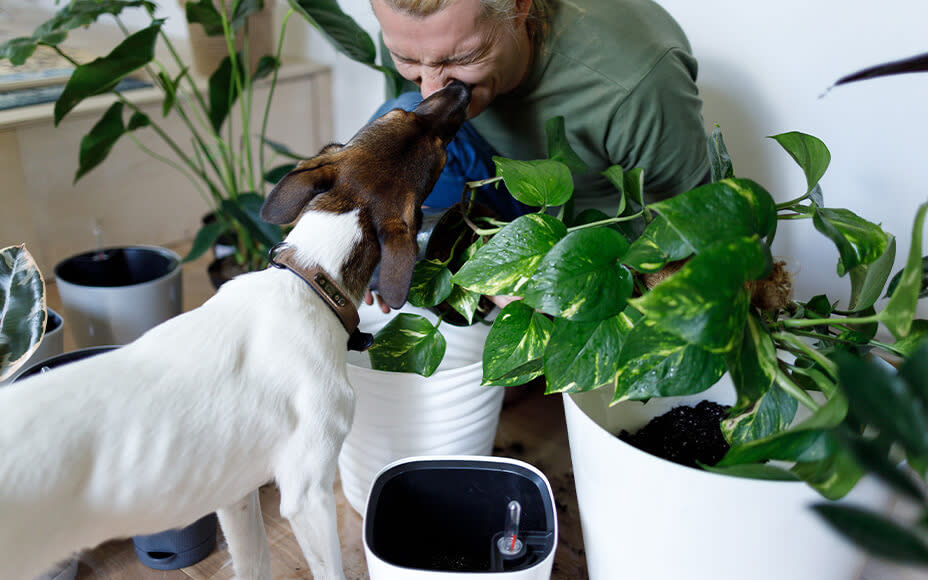
Poisonous Plants for Dogs
Does your dog tend to eat some grass from the lawn? Don’t worry! That’s entirely natural and, in part, essential for your pet’s digestion. However, if your dog nibbles on everything within reach during a walk, unaware that it might be consuming a toxic plant, you should be cautious.
Now it’s up to you to know what your dog can nibble on during walks and what it should avoid. This also applies to your home: if you’re a plant enthusiast, check which plants should be kept out of your dog’s reach. These plants are unsuitable for both chewing and consumption:
Poisonous Garden Plants for Dogs:
- Lily of the valley
- Tulip
- Foxglove
- Hydrangea
- Mistletoe
- Oleander
- Rhododendron
- Ivy
- Tomato plant
- Laburnum
- Buckwheat
Poisonous Indoor Plants for Dogs:
- Ficus/Dragon Tree
- Poinsettia
- Dragon Lily
- Begonia
- Cyclamen
- Weeping Fig
Various other plant species can also harm your furry friend if consumed.
Tobacco, Cigarettes, and Cigarette Butts: Highly Toxic to Dogs!
Even if cigarette butts belong in the trash and not on the ground, our super sniffers find many of them during walks on paths and in bushes. If your dog or puppy is more of a vacuum cleaner type, keep an eye on it because both whole cigarettes and just the butts are toxic to dogs!
If your dog eats a cigarette butt, even if the cigarette has been fully smoked, nicotine is present. While this substance stimulates the human nervous system, it triggers nicotine poisoning in your dog with an intake of 4 mg or more. This amount can be absorbed by the dog from a consumed cigarette butt.
What to do if the dog has eaten a cigarette or cigarette butt?
If your dog has eaten tobacco, a cigarette, or just a butt, the initial signs of poisoning include trembling, vomiting, and salivation. In the worst case, your dog may experience cardiovascular failure. Therefore, if your dog has eaten a cigarette butt or even a whole cigarette, you should immediately go to the veterinary clinic!
Chewing Gums for Dogs: Not Edible!
Let’s assume that no one would intentionally give their dog gum for bad breath. However, if your dog helps itself to your pack of gum without permission, you should also go to a clinic for safety reasons. The sweetener xylitol, often found in gums, is a suitable sugar substitute for humans but is toxic to your furry friend, leading to a drop in blood sugar levels and liver damage upon consumption.
Even gum thrown on the ground, which was simply spat out, can cause discomfort, stomachaches, and vomiting.
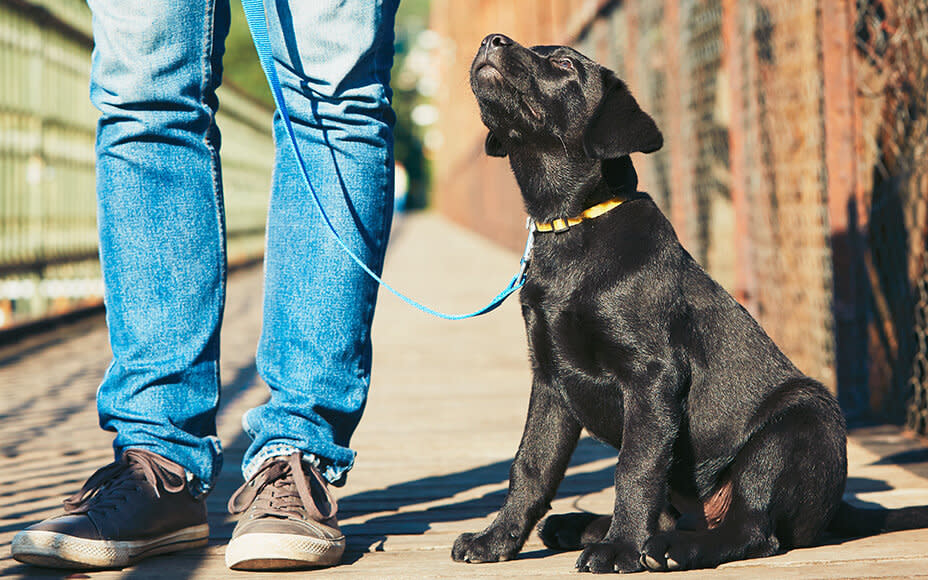
How Can I Prevent My Dog from Eating Toxic Substances?
Prevention is the best medicine, so it’s essential to work on ensuring that your dog doesn’t pick up anything from the ground without permission. Obedience training and a strong bond with your furry friend make it easier to react in such situations. In training, you may influence your dog’s behavior so that it accepts food only from you and refrains from eating things from the street.
At home, make sure to keep toxic foods for your dog out of reach and check before sharing your food with it – your favorite snack might be dangerous for your best friend. In such cases, opt for species-appropriate treats.
If, despite all measures, your dog has consumed toxic foods: stay calm, inform the vet! Provide your dog with reassurance, as such a situation is just as stressful for it as it is for you.
What Should I Do If My Dog Has Eaten a Toxic Substance?
Poisoning is a serious matter! If you suspect poisoning, contact your veterinarian as soon as possible – emergencies are always treated immediately. You know your dog best – and that is a significant advantage when it comes to poisoning. Always observe it and react if something seems off.
With few exceptions (e.g., activated charcoal for chocolate consumption), you should refrain from giving medications because many drugs have a different effect on your four-legged friend than on you.
In the case of poisoning, the golden rule is: Better to call the vet too many times than too few! In the event of poisoning, it is advisable to keep the object and take it to the vet’s office to facilitate quick treatment.


